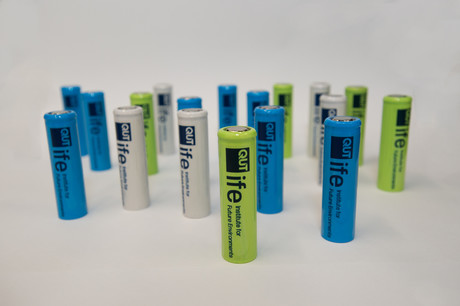QUT creates lithium-ion batteries

Queensland University of Technology (QUT) has established a facility capable of manufacturing rechargeable lithium-ion batteries — the first of its kind in Australia at a commercial scale, according to Professor Peter Talbot from the university’s Institute for Future Environments.
The facility is contained within the university’s pilot plant precinct at Banyo, in Brisbane’s north. Infrastructure built at the facility is said to include Australia’s only electromanufacturing room with zero humidity, which is what enables the production of the batteries.
According to Professor Talbot, he and his fellow researchers have identified “the best lithium-based powders to use to create a battery of the highest energy-efficiency standards possible”.
“The powder is a combination of lithium and other compounds. We tested various compositions of chemicals until we were satisfied that we had achieved the best powder possible.
“Our process enables us to rapidly test and prototype rechargeable lithium-ion batteries of various shapes and sizes.”

Professor Talbot said the QUT batteries are based on commercial battery formats comparable to those used to power Tesla vehicles. They are said to be extremely safe and efficient, with the technology and processes developed at QUT suitable for use by any commercial battery manufacturing company.
Indeed, Professor Talbot suggested the research could be used to kickstart a commercial lithium-ion battery manufacturing industry in Australia, with the batteries being one of the most popular types of rechargeable batteries used in portable electronics and expected to play an increasingly significant role in the automotive industry of the future.
“As more and more vehicles in the future are manufactured to run on battery power, the development of longer-lasting batteries will be crucial to a vehicle’s overall efficiency and appeal to consumers,” Professor Talbot said.
Professor Talbot even suggested that the facility could value-add to the mining industry. Lithium is mined in several countries, including Australia, so it is feasible that miners could have their materials validated at the plant.

Now that QUT has developed the purpose-built facilities needed to produce lithium-ion batteries, the university has the capacity to build the batteries for specific commercial applications. Professor Talbot noted, “We will be able to purpose build the most efficient batteries possible to power any number of devices and products including some of QUT’s key robots.”
The project is the outcome of a three-year, $4 million project, funded by the Auto Cooperative Research Centre and conducted in conjunction with the Malaysia Automotive Institute. Professor Talbot said the research “wouldn’t have been possible without the financial backing of the Australian and Malaysian governments”, thus highlighting “the importance of international research partnerships in the efforts to solve global problems”.
Originally published here.
Untapped solar could achieve billions in savings
UNSW research has found that people living in apartments, social housing and private rental...
NSW South Coast gains its first community battery
The Shell Cove battery is one of 54 batteries currently being rolled out across Endeavour's...
The sustainability sector's thoughts on a 'future made in Australia'
Hear thoughts from leaders in heavy manufacturing and climate tech, regional areas and cities as...











